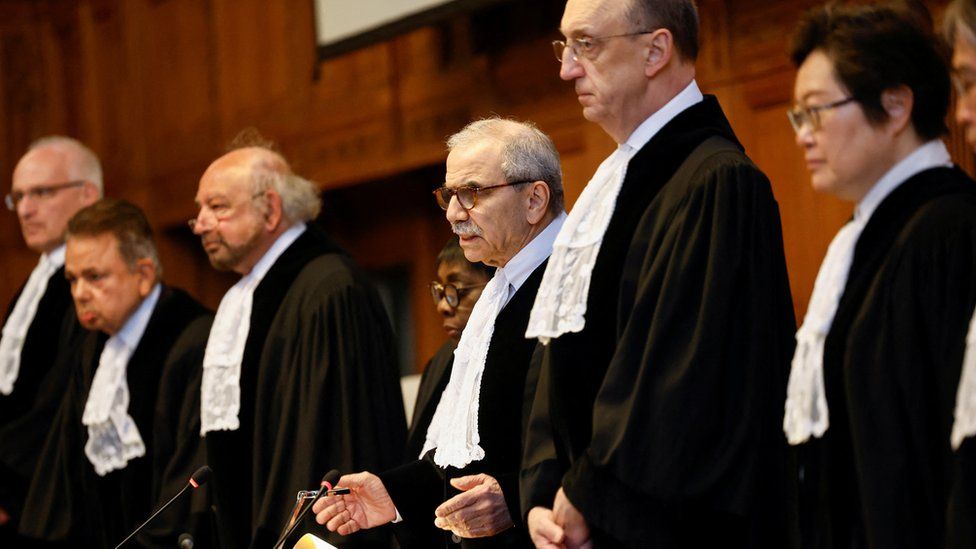ICJ rules it will not halt German arms to Israel
- Published

Judge Nawaf Salam delivered the ICJ's decision on Tuesday afternoon at the court in the Hague
The International Court of Justice has ruled against issuing emergency orders to stop Germany's arms sales to Israel.
Nicaragua brought the case, arguing that Germany had breached the UN genocide convention by sending military hardware to Israel.
The German government said the lawsuit was unjustified.
Berlin is a staunch ally of Israel and the second largest supplier of arms to the country after the US.
A final ruling could take years. Today's decision was over emergency measures to be implemented swiftly.
In 2023 some 30% of Israel's military equipment purchases came from Germany, totalling $326.5m (£257m) last year - a tenfold increase on 2022.
Nicaragua said Germany's arms sales to Israel made it complicit in Israel's alleged war crimes.
Israel has rejected accusations of genocide and says its actions in Gaza are focussed on destroying Hamas.
The Central American country had brought the case to the Hague in early March to ask judges to issue emergency measures to stop Berlin from providing Israel with weapons and other assistance.
It also said Germany had breached the UN genocide convention by ceasing funding of the UN's aid agency, UNRWA.
Germany was one of 15 Western nations which suspended funding for UNRWA over allegations that some of the agency's staff were involved in the 7 October attacks on Israel.
Writing on X following the court's verdict, the German ministry of foreign affairs welcomed the decision and said Germany was "not a party to the conflict in the Middle East".
It added that Germany was the largest donor of humanitarian aid to the Palestinians and that it was working "urgently" to ensure that aid reaches the people of Gaza.
Presiding Judge Nawaf Salam said the ICJ - which ruled 15-1 - remains "deeply concerned about the catastrophic living conditions of the Palestinians in the Gaza Strip".
The court will now have to decide whether it has jurisdiction over the case. If so, it will then proceed to judge the case itself - which could take years.
Nicaragua - a longtime supporter of the Palestinian cause - likely decided to take Germany to court as Germany is the second-largest arms exporter to Israel. The US, which provides Israel with a much higher volume of weapons, does not recognise the ICJ's compulsory jurisdiction.
Critics of Nicaragua's case have highlighted the country's chequered human rights record. The government of President Daniel Ortega has jailed opponents and banned protests. In March, the UK's mission to the UN accused the government of a "relentless" crackdown on human rights.
- Published9 April